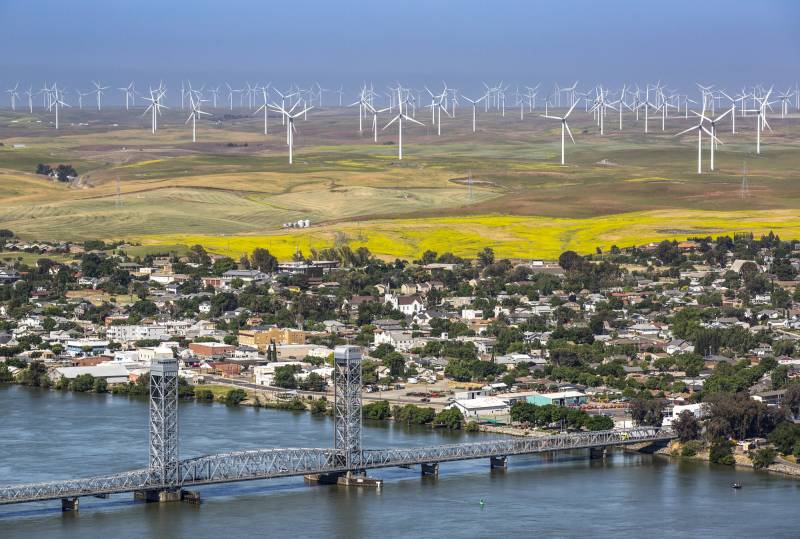Elected officials in Solano County will meet this week with a group of Silicon Valley billionaires who want to construct a new city on nearly $1 billion worth of land they secretly purchased.
Over the last five years, Flannery Associates has purchased $800 million worth of land just outside of Travis Air Force Base. After the land was bought for much more than its present value, government officials started investigating the group due to homeland security concerns with the location next to a military base.
But The New York Times recently revealed that, rather than a foreign adversary, Silicon Valley tech giants have been buying up the agricultural land — in hopes of starting a city from scratch. According to the Times, those backing Flannery Associates include Laurene Powell Jobs, entrepreneur and founder of Emerson Collective, venture capitalist Michael Moritz, Reid Hoffman, co-founder of LinkedIn and Marc Andreessen and Chris Dixon, investors at the Andreessen Horowitz venture capital firm.
The revelation has not soothed the concerns of local officials and existing community members.
“We were concerned it might be the Chinese. Well, we’re still concerned. A bunch of wealthy Silicon Valley billionaires putting together an initiative that suits their purpose may be a very serious threat to Travis Air Force Base and our national security,” U.S. Rep. John Garamendi, who represents Solano County, told KQED. “Flannery Associates have proven themselves to be terrible bad actors, using strong-arm techniques that you might find in the mafia, forcing people to sell their land even though they did not want to, and engaging in practices that are just despicable.”

